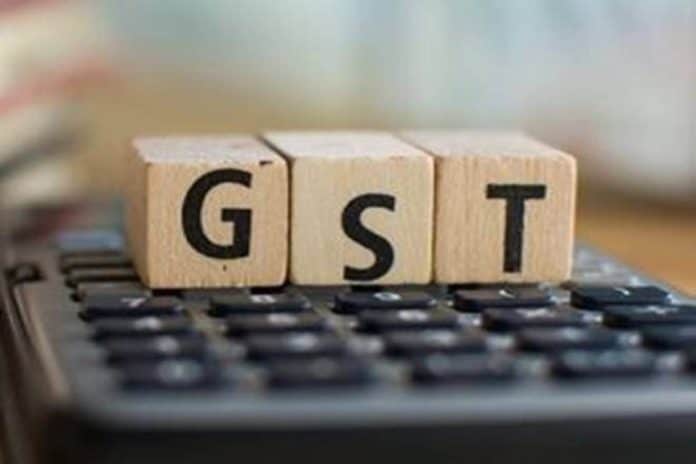Starting a new business calls for detailed planning and meticulous execution. For a new business already juggling many challenges at a time, learning the complexities of taxation can be very daunting. Owing to immense market potential and business-friendly schemes, a number of startups and young businesses have emerged in the country in the last few years. However, there is a lot of ambiguity about the tax laws applicable to startups.
Prior to July 2017, startups with turnover as low as Rs 5 lakhs also had to pay a hefty amount in taxes. There were hardly any provisions for small businesses, and the process was extremely complex.
With an aim to smoothen the taxation process and provide relief for certain business segments, GST(Goods and Services Tax) has been rolled out throughout the country since July 2017. It subsumes all other previous taxes and brings almost all businesses under the purview of a unified taxation system. GST laws also make special provisions for new businesses and startups to help them flourish in the initial years of conception.
A-Z of GST Laws for Young Businesses and Startups
Under the current tax system, businesses with a turnover of more than GST threshold limit Rs 40 lakhs (Rs 20 lakhs for service providers) are required to mandatorily register for GST and file returns timely. Registered businesses can take benefit from various schemes and provisions under different categories.
Composition scheme under GST offers subsidized tax rates for small businesses having a turnover of less than Rs 1.5 crores. Additionally, the input credit system also enables startups to claim for the deduction of taxes paid on purchases for office and business. This reduces the overall tax liability for a new business, providing a much-needed relief in the initial years of business.
The simplified registration process and filing of tax returns under the GST scheme also mean that young businesses can focus more on the business instead of spending time in tackling taxation and compliance.
In order to take advantage of the GST scheme, young businesses and startups should get a few things right.
Registration
GST mandates registration when the business crosses the threshold limit of Rs 40 lakhs/Rs 20 lakhs of annual turnover. However, voluntary registration for GST is also possible for all businesses.
There is a dedicated category for businesses involved in e-commerce, which have emerged as one of the most lucrative businesses in the last few years. It is mandatory for e-commerce operators to register under GST regardless of their turnover within 30 days of commencement of business.
Businesses can register for GSTIN through the governmental portal or take services of professionals to apply for the same. GST REG-01 form is used to apply for registration. A unique GSTIN (GST identification number) is issued in the name of the business after successful registration of the business on GSTN (GST Network).
Applicants need to furnish PAN of the business or individual applicant, identity, and address proof of the promoters, address proof of place of business, and bank account proof while applying for GSTIN.

Tax Slabs
Tax rates under GST vary from 0% to 28%, depending on the nature of your business. However, young businesses can benefit from the composition scheme under GST that allows them certain discounts on tax rates. Businesses involved in the sale or purchase of agricultural goods and medical services are completely exempted from tax under the GST scheme. Businesses registered as e-commerce have to collect and pay TCS (tax collected at source) of 1% on all sales.
Under the composition scheme, traders and manufacturers with turnover less than Rs1.5 crores, a flat rate of 1% of the turnover will be levied as GST as of now. Restaurant owners pay 5%, while service providers pay a concessional rate of 6% under this scheme. However, there are certain categories of businesses that cannot avail composition schemes such as manufacturers of tobacco, pan masala, and ice cream or business supplying goods through e-commerce or businesses making inter-state supplies.
To avail of the composition scheme, businesses can apply online using the GST CMP02 form. Startups and new businesses can also use an input credit scheme that allows them to set off the input tax on sales.
Filing GST Returns
GST requires any business to file two monthly returns and a consolidated annual GST return. The number of returns is reduced under the composition scheme. The returns carry the details of sales and purchases, output tax, i.e., tax collected on sales and input tax, i.e., tax paid on purchases.
Filing returns under GST is done through the following forms:
GSTR 1 – This form is used to submit the details of sales made during the month. GSTR-1 is submitted by the 10th of every month. For instance, for sales made during May 2020, GSTR-1 will be filed before the 10th of June 2020.
GSTR 3B – Details of all sales and purchases made during a month are captured in GSTR-3B. GSTR-3B is also filed monthly by the 20th of every month.
GSTR 4 – If a business is registered under the composition scheme, it is mandatory to file GSTR-4 in every quarter.
GSTR 8 – E-commerce businesses have to file GSTR-8 by the 10th of each month. The form captures details of TCS collected during the period.
GSTR 9 – Annual GST return is filed by the business using the GSTR-9 form (GSTR-9A for taxpayers registered in composition scheme).
Similarly, businesses registered under different schemes of GST have to use the prescribed forms for filing returns on regular intervals.
There are various platforms available in the market that facilitate accounting and taxation for startups and new businesses so that they are able to focus on their core business activities. GST process right from registration to filing return in automated and accessible through an online portal.
Moving ahead
Startups and young businesses are flourishing in the Indian market. Immense market potential and the ease of doing business encourage more and more entrepreneurs to enter the market.
Simple, transparent, and business-friendly tax laws are imperative to help these enterprises grow and generate more revenue and employment. Tax reforms such as GST introduction and startup schemes project a promising future for startups and young businesses in the country.


